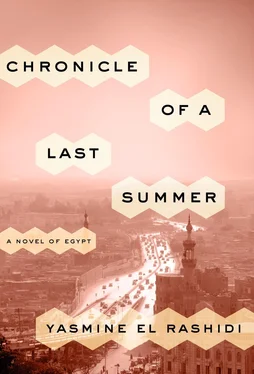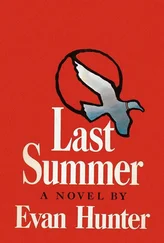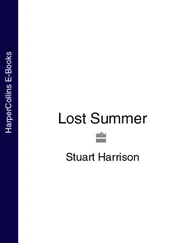At first I thought it was just the emotional lesions of life, Baba’s weariness. He seemed to have become a pessimist, not the Baba I had remembered or imagined him to be. I kept a journal every day of that first year he was back. I wrote down everything he said, everything I remembered of our conversations, our days, his expressions, what he was wearing, what he would order to eat. I wrote down how I felt, the vacillating emotions, the realizations, the chasms between the memories and stories I had imagined, pieced together, held close, and the truth of who Baba was, who he had become. Now I pick up the notebook chronicling that time, starting in the summer of 2010. On every page I take note of the question marks. The word truth seems to repeat itself multiple times on each page. My handwriting is barely legible.
—
I became less and less reactionary to Baba’s pessimism when I fully digested all that he had been through. Then day by day, as the months drew on, I saw intimations of change. His group of friends got larger. Those who had once pursued him through government and legal cases now sat side by side, also victims of this cyclical history I was just beginning to grasp in the aftermath of uprising. They would sit around rusted tables pulled together, piles of newspapers between them, peanuts in brown bags, sometimes sandwiches of ful and taamiya , debating the news. The army will do this. The Islamists will do that. My source tells me the Americans forced the army to let Morsi win. It was forged. I have documents proving it. Impossible. I swear. They all had theories, sources, certainty. Once an outer mourning had left and marked their faces, they all began to laugh, about the old days, how they used to live. One man: Remember when I was a Basha. He would then throw his head back and growl with laughter. Another: At this time one year ago I would be sitting down to drink tea with Mubarak and briefing him. And look at me now, practically in my boxers, being served stale bread. Roaring laughter. Baba pointed to one man one morning. He looks at least ninety, doesn’t he? I nodded. But you will never believe that he is actually my age. We did business together. He ran the most successful cement business. He supplied me the raw materials for the factory. They put him in jail. They couldn’t benefit in any way because he was so straight. They forged papers. Ten years, look at what they did to him. There was a time when either you stayed and lost your life, or you fled. Baba pushed his glasses up his nose. He pointed to another man. Then a woman. Then a couple in the distance. Those two, he would begin, and then tell me their story. Here is the former state security agent. He used to be the most successful currency trader. This man used to be the minister of foreign affairs. This man was Mubarak’s adviser on Israel. This man was his photographer. This good-looking man is the son of the most glamorous couple in show business. This woman used to be Miss Egypt. Once the most important newspaper columnist in the Arab world. This man used to own a bank until they nationalized and confiscated it. He lost everything. If you had heard this woman’s voice when she was young… Age hasn’t been so kind to this lady here.
—
I begin most days at the club with Baba now, surrounded by his friends of circumstance. I run while he swims, then we have coffee before I go home to work. We have never really spoken about his years of absence. I have a vague idea of what happened, the problems, his refusal to offer a major contract he had tendered to one of the president’s sons, the corruption charges they manufactured and landed him with, case after case, unrelentingly. Where he went, what his life was like during those years, I have pieced together stories, but never ask questions, never raise the conversation, despite still holding it all close. Sometimes Baba will make mention of what life has taught him. After all I have been through, he will say. I nod, then try to change the subject, to steer conversation to something else. I came to understand from my own experience that Baba had been a victim too. They had broken him. I knew he would also never really come to terms with being absent when Grandmama died. I could see all this in his face, every single day, the nervous tic that marked him. The right corner of his lips would turn downward for a second, pulling his whole face into a droop, before turning up again. He would then scrunch his nose, as if in discomfort, and blink. It was the kind of blink that lasted longer than necessary. The kind of blink you took notice of. It was almost as if he were trying to blink something out of his eye, or perhaps even his memory.
Although Baba’s twitch seems to have lessened these days, I now understand what Dido used to say about my anger, that Baba’s circumstances should have unleashed it. Only in writing this now, reflecting back on it all, projecting myself into these pasts, real and imagined, considering the last few years, do I understand that in the end it did. Things built up; our frustrations, desires. And we all released something, given the chance. Our breaking point was about opportunity, human emotion being offered an outlet, in tandem discovering its source. In a notebook I write this down. I also make note of my anger. I seem to have developed more empathy than anger. Is this normal? I write. I find that note now, circled in a green pen and underlined twice. It is dated December 31, 2012. My desire to pull Baba from a past that lurked at every corner and bring him into a new present felt extreme during that time. I wanted him to be excited about revolution, to shake off his skepticism, the shadow of past lives. I wondered, constantly, about memories overwritten, what it would take to overwrite his — all he had seen, those years of hiding and distance. I now realize that it takes either a larger trauma or fleeting euphoria to erase what was. I can’t imagine what might efface our most recent disappointments, except maybe the passing incandescence of love.
—
I ask the taxi to pull over just after the Azhar Mosque. A year ago to this day in July, the city was at a standstill. Millions in the streets calling for the ouster of then-president Morsi. I counted myself among them. Most friends, acquaintances, colleagues I know, even those who now say his ouster was a coup, were there with me. Baba found the crowds too much and preferred to watch it all on television, calling in every hour or so for an update from the ground. Mama had come with me. She had started to attend more protests than I. She had been scared when the protests had begun those years ago, but then after a few, she said she felt liberated. She would take her flag and march, chant, clap, wave her arms emphatically with the crowds. I didn’t know it then, but her stamina came to outlast mine. I hear her voice in my head now as I step onto the street. A building-size flyer of the new president, Sisi, hangs off the sides of one, two, I count five buildings on the street. Time changes perspectives, she used to say. Things become darker, like paint. I also think of Uncle, warning Dido and me that in life we have to assess things and always take a position. It’s all relative, he told us. I wonder if my position is too often ambiguous. A position of trying to weigh things and assess and be objective is sometimes a clear position, and sometimes no position at all. I think a lot about what it means to be a witness, the responsibility of it. I wonder about my writing, if fiction is a political statement or simply no position. Is the silence of objectivity and being an observer, witness , the same as complicity? This question occupies me. H categorically tells me it is not. She says I shouldn’t mix things. She no longer believes that everything in the universe is connected, but she says that intent is the most important thing. What is one’s intention? I imagine it’s the position of the yogi, which she now is, teaching classes every day. I know that Dido thinks otherwise, and it makes me question why I am more forbearing in the name of change when he only stands by the absolute. These thoughts stay with me as I give the taxi two pounds more than the tolled fare. When the meter was first introduced, we all complained and said it was thievery. Then we forgot. Swiftly. I appreciate a meter after a lifetime of bargaining.
Читать дальше

![Маргарет Миллар - Rose's Last Summer [= The Lively Corpse]](/books/384369/margaret-millar-rose-s-last-summer-the-lively-c-thumb.webp)










